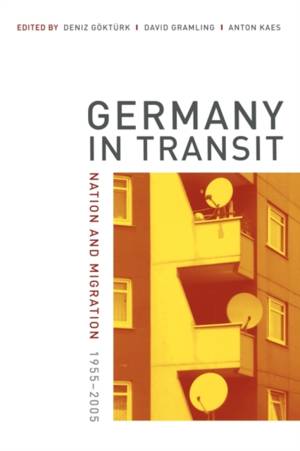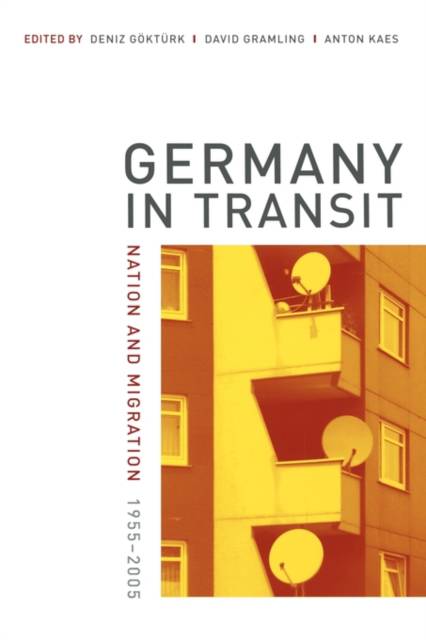
- Afhalen na 1 uur in een winkel met voorraad
- Gratis thuislevering in België vanaf € 30
- Ruim aanbod met 7 miljoen producten
- Afhalen na 1 uur in een winkel met voorraad
- Gratis thuislevering in België vanaf € 30
- Ruim aanbod met 7 miljoen producten
Zoeken
Germany in Transit
Nation and Migration, 1955-2005 Volume 40
€ 66,45
+ 132 punten
Omschrijving
How does migration change a nation? Germany in Transit is the first sourcebook to illuminate the country's transition into a multiethnic society--from the arrival of the first guest workers in the mid-1950s to the most recent reforms in immigration and citizenship law. The book charts the highly contentious debates about migrant labor, human rights, multiculturalism, and globalization that have unfolded in Germany over the past fifty years--debates that resonate far beyond national borders.
This cultural history in documents offers a rich archive for the comparative study of modern Germany against the backdrop of European integration, transnational migration, and the fall of the Berlin Wall.
Divided into eleven thematic chapters, Germany in Transit includes 200 original texts in English translation, as well as a historical introduction, chronology, glossary, bibliography, and filmography.
This cultural history in documents offers a rich archive for the comparative study of modern Germany against the backdrop of European integration, transnational migration, and the fall of the Berlin Wall.
Divided into eleven thematic chapters, Germany in Transit includes 200 original texts in English translation, as well as a historical introduction, chronology, glossary, bibliography, and filmography.
Specificaties
Betrokkenen
- Uitgeverij:
Inhoud
- Aantal bladzijden:
- 613
- Taal:
- Engels
- Reeks:
- Reeksnummer:
- nr. 40
Eigenschappen
- Productcode (EAN):
- 9780520248946
- Verschijningsdatum:
- 3/04/2007
- Uitvoering:
- Paperback
- Formaat:
- Trade paperback (VS)
- Afmetingen:
- 192 mm x 229 mm
- Gewicht:
- 839 g

Alleen bij Standaard Boekhandel
+ 132 punten op je klantenkaart van Standaard Boekhandel
Beoordelingen
We publiceren alleen reviews die voldoen aan de voorwaarden voor reviews. Bekijk onze voorwaarden voor reviews.










